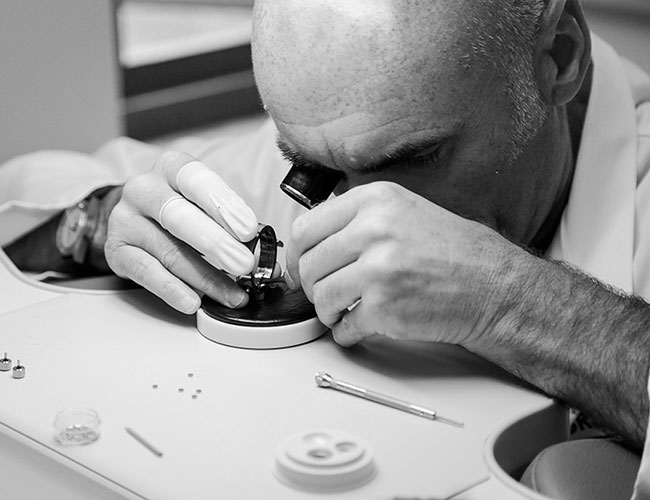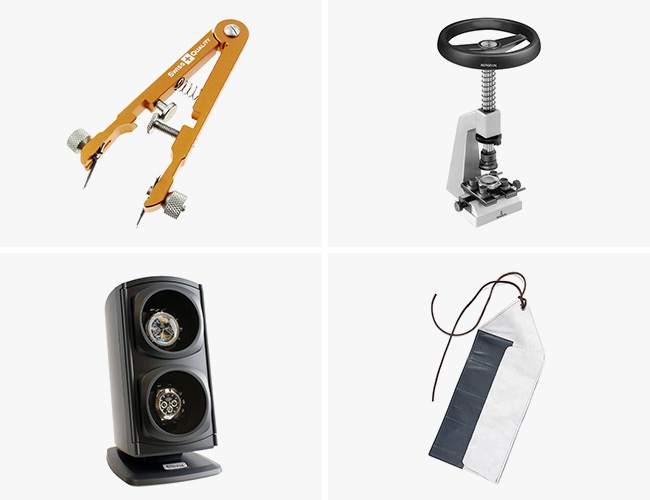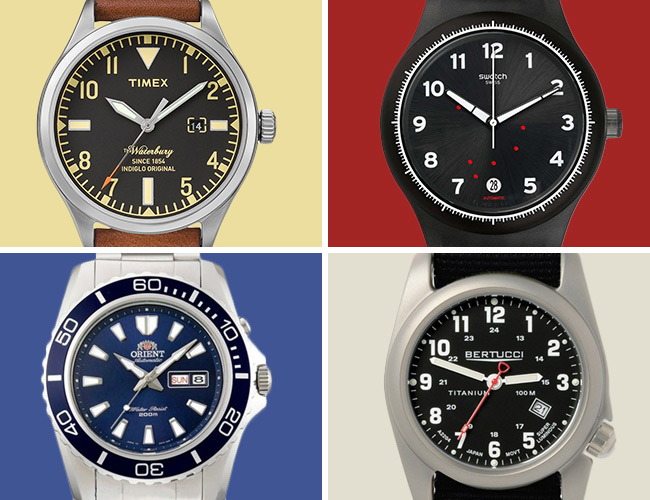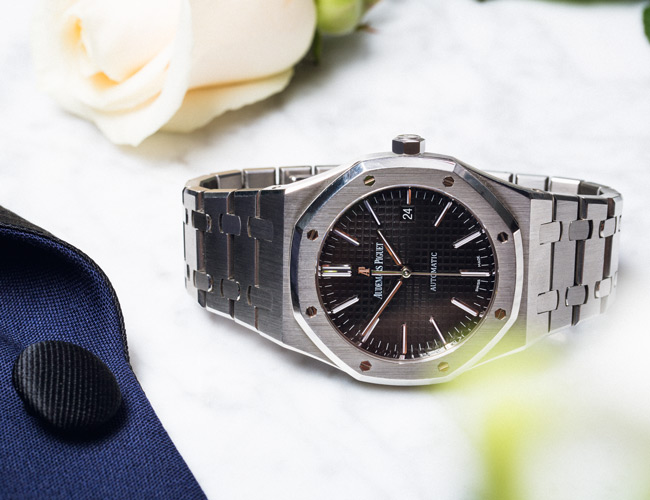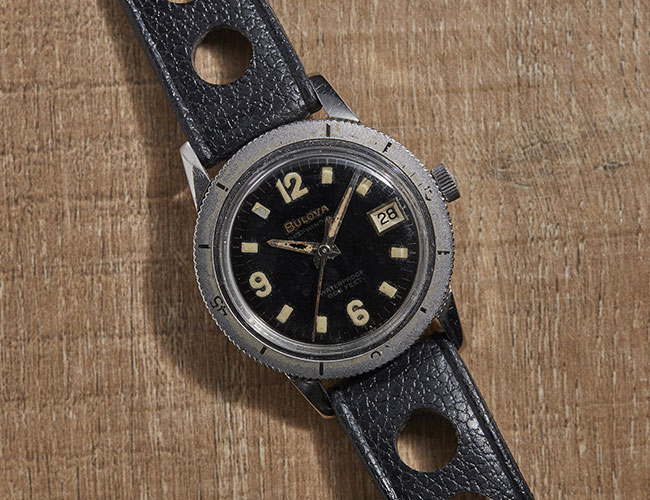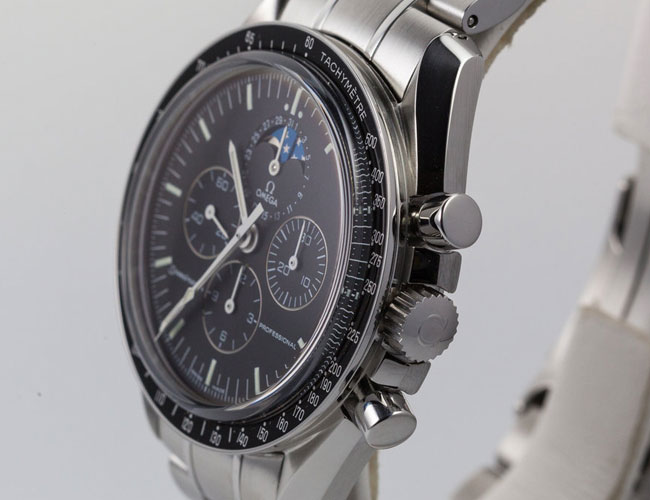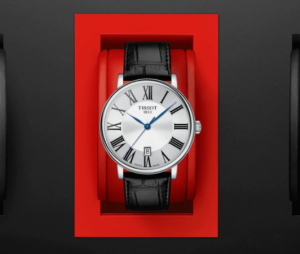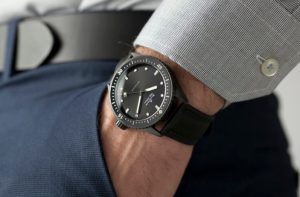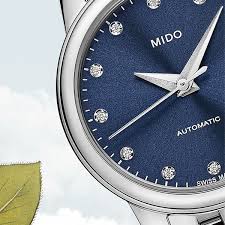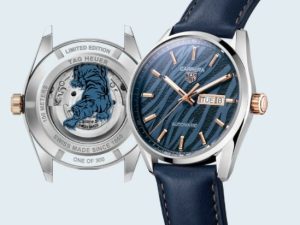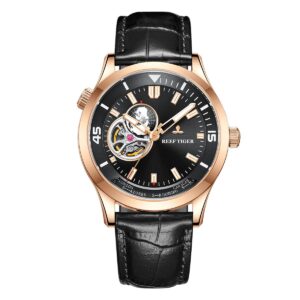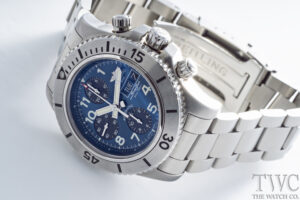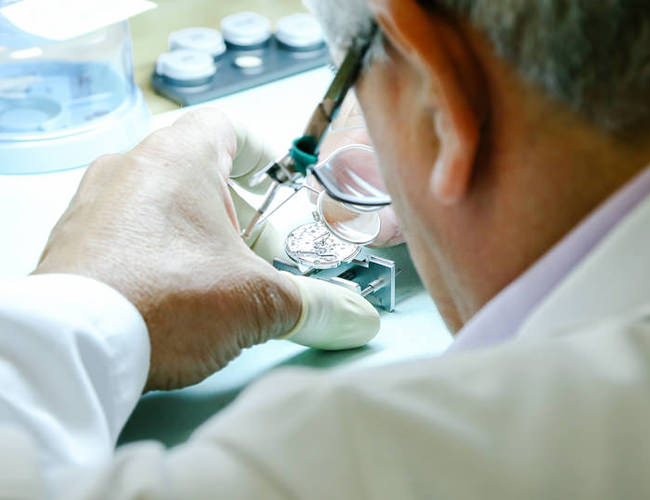
One of the oldest family-run watch-repair shops in New York, Central Watch, was opened in a 5 x 15-foot stall in Grand Central Station in 1952. (That’s impressive, but it’s not a revelation.) Its founder, Max Kivel, had a son, Larry, who took over the shop when he was old enough. (Nice, but not unordinary.) That man, Larry, had a son, Steve, a real smart guy who figured he’d get rich one day; but instead, against his father’s wishes, he took over the family business. (Extraordinary, but not enough to bring you to tears.)
Now, halfway through an interview, a father and son stopping what they’re doing, shaking hands, then kissing each other on the cheek, smiling so hard it must hurt, basking in that wonderful hot-cheeked male awkwardness that comes with unbridled affection — that’s enough to make you think, gosh, this place is pretty dusty for a pristine watch repair space.
The question that prompted this recent soppiness was what the Kivels had learned from each other, not just in life, but in business. “I’m always impressed when I see what he does,” Larry said of his son. “Like a watch, everything needs to fit together, and he’s made that fit.”
“Treat people the way you want to be treated,” Steve said, “and he treats people like nobody I’ve ever seen.”
See what I mean? Is that shirt tight around your throat or what?
We asked them about how a single family builds a 64-year empire of watch repair atop three generations, and got a whole lot of history, experience and love in return.
Additional reporting by Andrew Connor.
More Watches 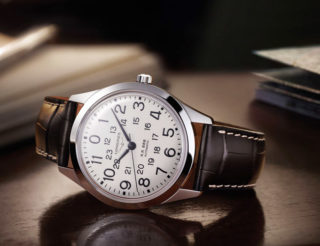 The 6 Watches We Want to Wear This Fall
The 6 Watches We Want to Wear This Fall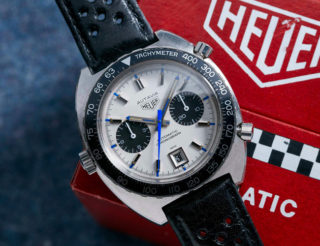 The Watch News You Missed This Week
The Watch News You Missed This Week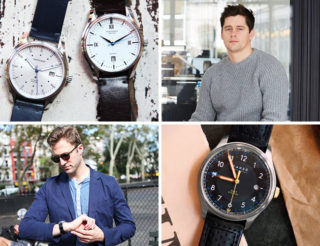 3 Young Companies Reinventing the Fashion Watch
3 Young Companies Reinventing the Fashion Watch
Q: When did the family business start?
Larry Kivel: The business started in 1952. My dad wanted a highly populated area and was fortunate enough to find a spot in Grand Central; he started a little hole in the wall. I started working full time in 1965, but I used to come in early as a 10-, 11-year-old kid and run some errands for him after school — I’d come in one to two days a week — and that’s how I got my first taste of this.
Q: Do you know how he had gotten into watchmaking?
LK: My dad came to this country in 1928 not speaking as word of English, but had a little bit of a [watchmaking] trade. He always worked hard. He was a man who wanted to provide for his family and had the American Dream. He always said, “In America the streets are paved with gold.” The punchline: “You have to know how to scoop it up.”
Q: Can you describe the shop a bit from when you were a kid?
LK: I was little so even that little store looked big — just kidding, nothing could make that space look big. It’s literally a hole in the wall. It was a newsstand for many years. At one time that corridor was the most heavily trafficked corridor in the terminal.There were several hundred thousand people a day who were shoulder to shoulder. I remember as a kid when crowds came by you could hardly hear anything.
Q: What did he teach you about watchmaking when you started working for him?
LK: Well, he always wanted things to be done the right way… you don’t want them to come back and say, “This isn’t keeping time.” So he was always very thorough with what he did.
Q: When you worked here as kids, did you do it out of a sense of duty, or did you come in by your own choice?
Steve Kivel: I think that for my dad, my grandfather needed him, so he probably felt more pressure to do it. For me, my dad always said, “Do not come into this store. Stay far away and become a doctor or anything else. Don’t be here — there’s no sunlight, there’s no air.”
LK: I felt there was more responsibility that my father put on me — I actually resented a little of it at the time, because it used to be on a Friday afternoon and all my friends were playing ball, and I was rushing in from Queens to get into the city to spend some time with him. But it worked, and it gave me more responsibility, and I developed more as a person, I believe, because of it.
Q: Steve, when you came along how old were you? Before then, were you in the shop, helping out?
SK: I was there all the time growing up — every holiday when I wasn’t in school I would come in… that gave me a taste for the industry. I always felt that I was a little bit shy when I was younger, but… being at that store — you’re like, on stage being there, you’re two feet above the other person — and when you’re talking down to people and they’re looking up at you, you’re performing all of a sudden. So that’s where I kind of came out of my shell. I liked the interaction with the customers, almost to the point where it felt like extended family. You know there’s been people who have been coming since day one to my grandfather, and have been working with my dad for decades, and then I’m there. They know my whole family, and then they’re learning about me, and I’m learning about them, and so it was a nice working environment working for my dad.
Q: What are some of the ways watches have changed over the years?
SK: It’s a different world today with watches. Watches weren’t important back then, they were just something to tell time with. It wasn’t something that would be passed down three different generations and increase in value and something you were going to have fifteen of. In your portfolio your stocks are worth “X”, your bonds are worth “X” and your watches are worth “X” — that’s the world we live in today.
Q: How has Grand Central changed since you’ve been doing this?
LK: Grand Central has been re-energized. When I started, more and more homeless people were there, they separated areas by putting partitions in — the beauty of the building has come back when they started renovations. Some things have changed — if you know where the Apple Store is, when I started there was a big Kodak picture that always took up that whole space.
SK: Where the food is now, it used to be a garbage dump. In the ‘30s there was a movie theater, but when I started, I used to take the garbage there. There were dumpsters, and rats the size of dogs. They cleaned it up pretty nice, it’s spotless now, but every once in a while when I’m walking there I think “man, I used to dump the garbage here.”
Q: When you started working for your dad, and when you started working for your dad, what were your concerns?
SK: I don’t know how he did it, because my grandfather was tough.
LK: He was a very domineering type of individual.
SK: He was no bullshit — if someone crossed him once, you were out — that type of person. Very shrewd, very sharp and could buy and sell probably like nobody that I’ve ever met before.
But for me it was very easy and comfortable, which is why I decided to stay. I had plenty of opportunities to go other ways and leave the business, but there was just something so enjoyable about being there. It was always a very nice lifestyle. I didn’t need a yacht or a Lamborghini.
LK: Just the yacht.
Q: What’s the most important thing you learned from your father in business and in life?
SK: Treat people the way you want to be treated — and he treats people like nobody I’ve ever seen. Like, there wasn’t a day I worked in that store that I kinda felt like shit because people would come up saying, “Is Larry there? Can Larry help me?” Which is okay; I got it because that helped me too. My dad would sleep maybe like three hours a night — but he would come in and function at the highest level. So I just learned to treat people as if I went somewhere and wanted to be treated well, and to have people come in and put a smile on their face and have them walk away happy. And if you can do that, in any business you’re in, you’re gonna succeed unless your work is really crappy. I checked my pride at the door a long time ago. It’s the right way. And in the end, somehow, I benefitted from it.
Q: What have you learned from your son?
LK: I’ve learned to be able to understand how a new generation comes in and moves ahead, and doesn’t scrounge off this family. That he has his ideas and he wants to make them happen. He has the insight about how to go about doing it. I’m always impressed when I see what he does. Like a watch, everything needs to fit together, and he’s made that fit and make it happen.
Q: Steve, you have daughters. Any desire for them to take over at some point?
SK: I want them to stay as far away as possible.
LK: The working conditions are particularly tough downstairs. Hot summers, cold winters, very little room to move around. Up here [in the office] it’s nice, but they should have careers with more freedom to move around.
SK: I like to think my daughters have their mother’s brain with their drive for school. The world is really their oyster… keeping them cooped up in that little hole downstairs would be an injustice to the rest of the world.
LK: I still don’t want Steven to be there.
Q: Do you think the father/son dynamic has helped give you an advantage throughout the decades?
LK: Definitely, because we’re dealing with commuters that come by you every day and see you every day, so they’ve made a connection with us. So there are grandchildren coming to us whose grandparents came to the shop forty or fifty years ago and dealt with my dad.
SK: It’s rare that a day or even an hour goes by that there isn’t a returning customer, somebody that’s been a customer, or could be for decades. There’s a lot of word of mouth, too. We’re in a horrible location in Grand Central, the worst possible. Every time it’s someone’s first time there it’s 45 minutes of looking… they say “we’ve been looking for you for 45 minutes but I knew I had to come because so-and-so said I had to come and they’ve been coming to you for 30 years.”
You never know where things go. So far we’re still here, we’re still going and working hard at it, hopefully more generations will come back to us. We’ll still have something here for them to come to, whether it’s my kids or my kids’ husbands or something like that.
